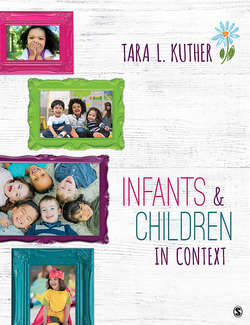Читать книгу Infants and Children in Context - Tara L. Kuther - Страница 113
На сайте Литреса книга снята с продажи.
Genetic Counseling
ОглавлениеMany prospective parents seek genetic counseling to determine the risk that their children will inherit genetic defects and chromosomal abnormalities (Ioannides, 2017; Uhlmann, Schuette, & Yashar, 2009). Candidates for genetic counseling include those whose relatives have a genetic condition, couples who have had difficulties bearing children, women over the age of 35, and couples from the same ethnic group. Genetic testing can also determine whether a couple’s difficulty conceiving or recurrent miscarriage is influenced by sperm chromosomal abnormalities in the male (Kohn, Kohn, Darilek, Ramasamy, & Lipshultz, 2016).
The genetic counselor interviews the couple to construct a family history of heritable disorders for both prospective parents. This service is particularly valuable when one or both prospective parents have relatives with inborn disorders. If a disorder is common in either parent’s family or it appears that they are likely to carry a genetic disorder, genetic screening blood tests may be carried out on both parents to detect the presence of dominant and recessive genes and chromosomal abnormalities associated with various disorders. The tests determine whether each parent is a carrier for recessive disorders and estimate the likelihood that a child may be affected by a genetic disorder. The genetic counselor interprets the results and helps the parents understand genetic concepts by tailoring the explanation to match the parents’ knowledge (Nance, 2017).
Once prospective parents learn about the risk of conceiving a child with a disorder, they can determine how to proceed—whether it is to conceive a child naturally or through the use of in vitro fertilization—after screening gametes for the disorders of concern. Given advances in our knowledge of genetic disorders and the ability to screen for them, some argue that genetic counseling should be available to all prospective parents (Minkoff & Berkowitz, 2014). Others argue that abnormalities are rare and so few would be discovered that universal screening is of little utility (Larion, Warsof, Maher, Peleg, & Abuhamad, 2016). Whether to seek genetic counseling is a personal decision for prospective parents based on their history, view of their risks, and their values. Adults who carry significant risks of conceiving a child with a genetic disorder sometimes consider alternative methods of reproduction.
